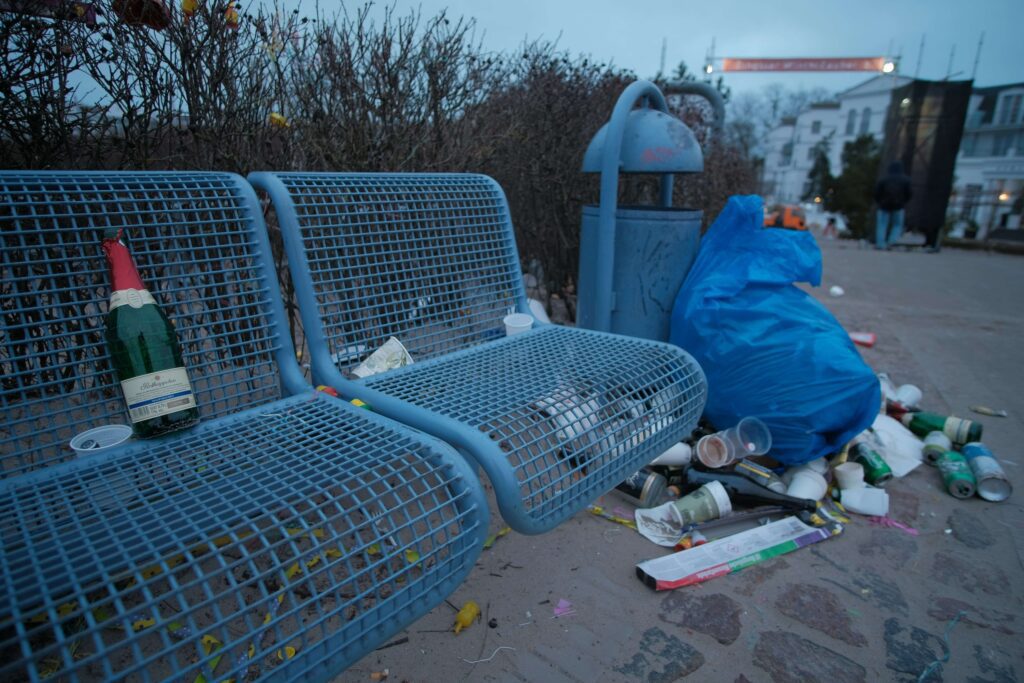Food Waste at Major Sporting Events: An Olympic-Sized Problem
- Commercial
- -
The world's eyes have turned to the Olympics this Summer. There’s nothing like the spectacle, the talent and the excitement of major sporting events to get everyone talking. But behind the scenes, these massive gatherings generate an alarming amount of food waste.
Key Points
- The size of crowds at major sporting events leads to overproduction and waste.
- This has environmental, economic, and social effects.
- Better planning, partnerships, and even portion control can all help reduce food waste at these events.
- Spectators, too, can do their part to help minimise the problem.
The Scale of the Sports Event Food Waste Problem
Major global sporting events like the Olympics, World Cup, and Super Bowl attract hundreds of thousands of spectators, athletes, and staff. It’s almost inevitable that feeding such colossal crowds leads to overproduction and waste, and this desperately needs to change. At the 2021 Tokyo Olympics around 175 tons of food prepared for athletes and 300,000 bento boxes for volunteers and staff members were thrown out. That’s 332,500 kg of carbon emissions being generated from fresh food waste alone, or the equivalent of running electricity for a household for 81.34 years.
“The food-waste problem was particularly noticeable during the Opening Ceremony, when operators discarded 4,000 of the 10,000 meals prepared.”
- Takaoki Yamamoto
Across the Atlantic in America, every year, the Super Bowl generates about 40 tonnes of waste, in fact Super Bowl events outside the stadium waste more than 63,000 kg (140,000 pounds) of food and drinks that could potentially be recovered for food aid.
Now, we know what you’re thinking, well, the problem is on a much larger scale in America. What if we told you that in 2019, Wembley Stadium estimated that nearly 30 tonnes of food and drink waste was created by visitors at their FA Community Shield match. In fact, researchers at Cardiff University found each person attending a match can produce seven times more waste than they would in their everyday life.
Just three examples in and the numbers are already staggering highlighting a really significant environmental and ethical concern.
So, Why Does This Happen?
1. Overestimation of demand:
2. Strict health and safety regulations:
3. Limited storage facilities:
4. Spectator behaviour:
What’s The Impact Of All This Waste?
What Can We Do?
The good news is all major event organisers have now listed tackling food waste as a target in their sustainability strategies. They’re aware of the problem, and steps are definitely being made in the right direction. One of UEFA’s principle targets in their 2024 ESG strategy is to prevent (they say ‘at this stage reduce’) waste. There are so many ways to reduce food waste at major sporting events:
1. Better planning: Use data analytics to more accurately predict food demand.
2. Partnerships with food banks: Put agreements in place to donate unused, safe-to-eat food.
London football clubs including Fulham, Crystal Palace, Chelsea and QPR work with the charity City Harvest to redistribute food when matches are postponed. When Queen Elizabeth II passed away and football fixtures across the country were delayed as a mark of respect, that meant a huge amount of food was about to go to waste. But by working together “the football clubs donated a total of 1.4 tonnes of surplus food to City Harvest London, equating to 3,368 meals for Londoners who cannot afford to eat.”

3. Planet friendly disposal: Sustainable systems to process inedible food waste.
Obviously the very best way to dispose of any food waste that isn’t fit for consumption is to send it to an AD plant, and we’re not just saying that, we can back it up.
The FA is on board too: “Our food waste is taken to an anaerobic digestion plant, where it’s turned into biogas (which can be used as vehicle fuel or introduced back to the National Grid) and a renewable fertiliser for agriculture.”
4. Portion control: Offer smaller portion sizes to reduce individual waste.
New research from WRAP says that 48% of people cite portion size as the main reason they leave food when eating out. With 51% wanting more choice in portion sizing, so it’s clear work needs to be done on the current model.
Guardians of Grub have also released a really helpful toolkit for organisations looking to measure and reduce food waste!
And then there’s the matter of what we’re putting all this food in; some of UEFA’s target activities for 2024 are to only sell packaging-free or limited packaging products, offer reusable cups or environmentally friendly cups.
5. Education: Raise awareness among spectators about food waste and its impact.
Fans Supporting Foodbanks has done amazing things in the world of UK football, “with the slogan ‘hunger doesn’t wear club colours’; people attending matches are encouraged to donate food and support their local communities”. Founded in Liverpool in 2015 and spreading across the country, they’re responsible for 30-35% of all food bank donations in Liverpool, which is an incredible achievement.
6. Offsetting: Making a promise and keeping it.
Offsetting is a brilliant and easy way to help keep the planet happy, but only if you keep your word! The Brazilian organisers of the 2014 World Cup promised they were going to hold the first-ever ‘carbon-neutral’ event, supported by certification and a plan to plant 1.4 million trees. To date though? Only 70,000 of the originally proposed trees have been planted.
The Olympic Example
The Olympic Games, with its huge global platform, has the potential to lead by example. Recent Olympics have definitely made more efforts to address food waste:
- The 2021 Tokyo Olympics put a food waste recycling loop into place, turning food waste into animal feed.
- Paris 2024 has pledged to reduce food-related emissions by 31% compared to previous games, partly by addressing waste.
What Can Spectators Do?
If you’re lucky enough to be attending a big game or event this year, you can play your part too:
- Order only what you can eat, under-ordering is always better than over! You could also bring reusable containers for any leftovers.
- If you can, choose vendors with sustainable practices, check their social media to get a picture of their ethics.
- Look out for recycling bins on site to make sure your waste is heading to the right place. Water refill stations have become more popular too, so bring that reusable bottle instead of buying plastic on the day.
- Educate yourself and the people you’re going with about the impact of food waste, maybe just drop this blog link in the group chat.

Looking to the Future
While food waste at major sporting events remains a huge challenge, increased awareness and sustainable solutions are paving the way for improvement. Although the food waste statistics might be alarming, the solutions organisers are turning to, especially in the UK are really encouraging. And with huge companies like the FA adopting Anaerobic Digestion as a key part of their waste management, we’re definitely heading in the right direction.
If spectators, athletes, and organisers continue to work together, we’re optimistic that future events will not only be exciting to watch, but also more sustainable and responsible in their approach to food.
BioteCH4 – A Food Waste Commitment
If you’re looking to reduce your sports event food waste, we’d love to have a chat.



